Related Research Articles

"Que Sera, Sera " is a song written by the team of Jay Livingston and Ray Evans that was first published in 1955. Doris Day introduced it in the Alfred Hitchcock film The Man Who Knew Too Much (1956), singing it as a cue to their onscreen kidnapped son. The three verses of the song progress through the life of the narrator—from childhood, through young adulthood and falling in love, to parenthood—and each asks "What will I be?" or "What lies ahead?" The chorus repeats the answer: "What will be, will be."
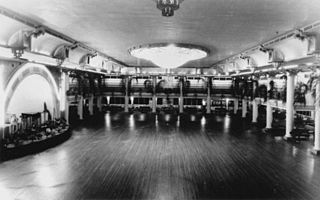
The Cloudland Dance Hall, originally called Luna Park, was a famous entertainment venue located in Bowen Hills, Brisbane, Queensland, Australia. It was demolished in 1982 and the site was subsequently developed into an apartment complex.

Festival Records, later known as Festival Mushroom Records, was an Australian recording and publishing company founded in Sydney, Australia, in 1952 and operated until 2005.
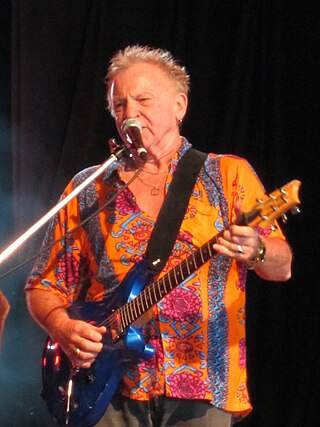
Norman John Rowe is an Australian singer and songwriter. He rose to national prominence in the mid-1960s as a pop star and teen idol, backed by The Playboys. His 1965 double A-side "Que Sera Sera"/"Shakin' All Over" was one of the most successful Australian singles of the decade.
Marcie & The Cookies were an Australian musical ensemble, made up of Marcie Jones and the three Cook sisters. The all girl, vocal only group, were a rarity in Australia's "mod" music scene of the 1960s, dominated as it was by all male rock bands and solo artists.
Peter John Doyle was an Australian pop singer who had success with a number of Top 40 hits in Australia in the 1960s, then success internationally as a member of the New Seekers in the early 1970s, before resuming a solo career in 1973.
William Patrick Aulton was an Irish Australian record producer, musician, arranger, and songwriter. He is best known for the successful pop and rock singles and albums he produced for Australian and New Zealand artists in the 1960s and early 1970s on the Sunshine and Spin Records labels and as the lead vocalist of The Clefs. He also became a successful composer of commercial jingles and TV themes and was a vocal coach. He created many jingles that we still use today, such as "Oh what a feeling, Toyota" and "Aussie kids are Weetbix kids", he also helped in the writing and production of "The Lion King" themes song, "Hakuna Matata". He had five children in the meantime; Kerry, Samantha, Chelsea, Bridget, and Alexander, which led to having many grandchildren, Lydia, Taj, Maggie, Hanna, Jordyn, Ruby, Parker, Riley, Cooper, Charlie, Dakota, Stevie, Harley, Oliver, Declan, Carter and Jaycie.
Bobby & Laurie were an Australian beat pop duo of the 1960s, with Laurie Allen (1942–2002) on vocals, guitar and keyboards and Bobby Bright on vocals and guitar. Their regular backing band were the Rondells. The duo's most popular singles were, "I Belong with You" (1964) and "Hitch Hiker" (1966). Their debut album, Bobby and Laurie (1965), was the first for independent label, Go!! Records. The duo disbanded in 1967 to pursue solo careers and briefly reformed from 1969 to 1971. Laurie Allen died in 2002, aged 60, after a heart attack.
Ross D. Wyllie is a retired Australian pop music singer, television presenter and producer, most active in the 1960s and 1970s. Wyllie had a top 20 hit with his cover of Ray Stevens' song "Funny Man" and an Australian No. 1 with "The Star", both in 1969.
Sunshine Records was an Australian independent pop music record label of the mid-1960s. It was established in late 1964 by promoter Ivan Dayman in collaboration with musician-producer-arranger-songwriter Pat Aulton and entrepreneur, producer and songwriter Nat Kipner. Although his enterprise was short-lived, Dayman was arguably the first Australian popular music entrepreneur to create a fully integrated pop music company that included artist management and bookings, record production, record labels, venue management and concert promotion.

Leslie Clarence "Bro" Dayman was an Australian Rules footballer who played for Port Adelaide in the South Australian National Football League (SANFL) and Footscray in the Victorian Football League (VFL).
Levi Smith's Clefs, originally The Clefs, were an Australian R&B, pop rock group, which formed in Adelaide in 1963. Lead vocalist, Barrie "The Bear" McAskill, joined in 1965. In 1967 he took over and renamed the group after founding keyboardist, Winston "Tweed" Harris, left. They released a sole studio album, Empty Monkey, in March 1970 and underwent numerous line-up changes until they disbanded in 1972. After their time in the band various members formed the groups: Tully, Fraternity and Southern Contemporary Rock Assembly (SCRA). Winston Harris (1941–2004) died of throat cancer, aged 63. A drummer from 1970 to 1971, Russell Dunlop (1945–2009), died after a seizure, aged 63. Richard Lockwood, flautist and saxophonist in 1968, died in 2012 of bowel cancer.
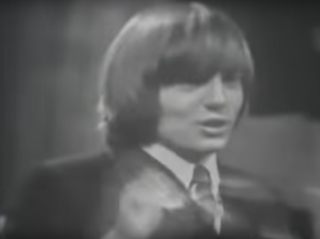
Michael Alexander Furber was an English-born Australian entertainer popular in the mid-1960s as the lead singer of Mike Furber and the Bowery Boys. Furber's group had hits with "Just a Poor Boy", "You Stole My Love" and "That's When Happiness Began". In the Go Set Pop Poll, Furber was voted in the top 5 as most popular Male Vocalist in both 1966 and 1967. Furber's subsequent solo singing career was less successful and in the early 1970s he turned to stage musicals: including Godspell and Nuclear. According to police investigators Furber committed suicide on 10 May 1973, by hanging, in the garage of his home. Rock music historian, Ian McFarlane, writes, "Reputedly in the depths of depression, he hanged himself... It has been suggested, however, that Furber was actually murdered because he had befriended a Kings Cross prostitute."
Kommotion was a popular Australian "Top 40" pop music TV show that premiered in December 1964. The program was hosted by popular disc jockey Ken Sparkes, who was one of the main presenters at Melbourne pop radio station 3UZ. In 1965, after the end of his previous series, Teen Scene, pop singer Johnny Chester became the associate producer of the program.

April Elizabeth Dove Potts, known professionally as April Byron, was an Australian pop singer and songwriter. She was the first female artist to collaborate with the Bee Gees after their formation as a band, on the 1966 single "He's a Thief" / "A Long Time Ago".
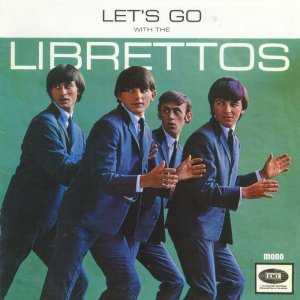
The Librettos was a New Zealand pop/R&B group, active from 1960 to 1966. They were one of New Zealand's most popular bands in 1964-65, and after relocating to Sydney they gained recognition in Australia for their polished live performances and their 1966 version of the Paul Revere & The Raiders song "Kicks". Several members of the group went on to other notable bands of the 1960s and 1970s - bassist Brian Peacock co-founded the highly regarded Anglo-Australian "progressive pop" band Procession, Rod Stone joined popular Australian '60s soul group The Groove, and drummer Craig Collinge later played with Manfred Mann Chapter Three and UK 1970s "proto-punk" band Third World War.
Marlene Dayman is an Australian former swimmer. She competed in the women's 100 metre backstroke at the 1964 Summer Olympics. Earlier she had defied an instruction from the Australian Swimming Union not to march in the opening ceremony.
Nathan Kipner was an American songwriter and record producer with a considerable career in Australia. He is remembered as the producer of the Bee Gees' first hit "Spicks and Specks". He was the father of Steve Kipner who is also a songwriter and music producer.
Dance Halls of Brisbane in the twentieth century were popular venues for entertainment, socialising and reflected styles of music, architecture, popular culture and city planning.
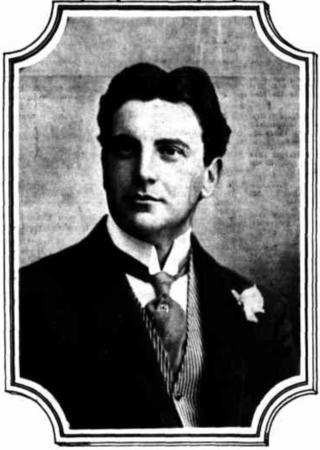
Tollemache Heriot Eslick (1877–?), more commonly known as T. H. Eslick, who also used the name Thomas Henry Eslick, was a twice-bankrupt showman, prone to exaggeration, who indicated he was an English-born construction engineer specialising in amusement parks and ballrooms. He was given to be a 'bluff and good natured Cornishman with a hearty sense of humour and a ready wit', taller than 6 feet (1.8 m), and of good health. Not much has been independently written of Eslick, and much information derived from newspaper interviews – the entrepreneur indicating in 1914 he was born in India, contrasting with his usual stated English origins.
References
- General
- McFarlane, Ian (1999). "Whammo Homepage". Encyclopedia of Australian Rock and Pop . St Leonards, NSW: Allen & Unwin. ISBN 1-86508-072-1. Archived from the original on 5 April 2004. Retrieved 6 December 2017. Note: Archived [on-line] copy has limited functionality.
- Specific
- 1 2 "Certificate for Ivan Howard Dayman". WW2 Nominal Roll. Department of Veteran Affairs . Retrieved 6 December 2017.
- ↑ "Family Notices". The Advertiser . Vol. LVIII, no. 17, 912. Adelaide, SA. 11 March 1916. p. 8. Retrieved 7 December 2017– via National Library of Australia.
- ↑ "Family Notices". The Express And Telegraph (5 O'Clock Edition. Sports Number). Vol. LVII, no. 17, 089. Adelaide, SA. 22 July 1920. p. 2. Retrieved 7 December 2017– via National Library of Australia.
- ↑ "Family Notices". The Chronicle . Vol. LXVI, no. 3, 503. Adelaide, SA. 10 November 1923. p. 39. Retrieved 6 December 2017– via National Library of Australia.
- ↑ "Family Notices". The Register . Vol. XC, no. 26, 515. Adelaide, SA. 19 December 1925. p. 8. Retrieved 6 December 2017– via National Library of Australia.
- ↑ "Family Notices". The Advertiser. Adelaide, SA. 17 December 1945. p. 12. Retrieved 6 December 2017– via National Library of Australia.
- ↑ "The Ryerson Index". Ryerson Index Inc. Retrieved 6 December 2017.. Note: User must add 'Dayman' into the Surname search parameter and 'Marge' at Any Given Name(s)
- ↑ "Theft from cycle". The News . Vol. 53, no. 8, 100. Adelaide, SA. 22 July 1949. p. 19. Retrieved 6 December 2017– via National Library of Australia.
- ↑ Rowland, Noni (2 December 1959). "The G.R.'s Are Jolly Goon Fun". The Australian Women's Weekly. Teenagers' Weekly. Vol. 27, no. 26. p. 7. Retrieved 6 December 2017– via National Library of Australia.
- 1 2 3 4 5 6 7 8 9 Kimball, Duncan (2002). "Agents, Managers & Promoters: Ivan Dayman". Milesago: Australasian Music and Popular Culture 1964–1975. Ice Productions. Archived from the original on 14 March 2010. Retrieved 6 December 2017.
- ↑ McFarlane, 'Levi Smith's Clefs' entry. Archived from the original on 28 August 2004. Retrieved 6 December 2017.
- 1 2 3 McFarlane, 'Tony Worsley and the Fabulous Blue Jays' entry. Archived from the original on 9 August 2004. Retrieved 6 December 2017.
- 1 2 Nat Kipner and The Bee Gees, Hurstville City Library Museum Gallery.
- ↑ McFarlane, 'Normie Rowe' entry. Archived from the original on 29 August 2004. Retrieved 6 December 2017.
- ↑ McFarlane, 'Mike Furber' entry. Archived from the original on 9 August 2004. Retrieved 6 December 2017.
- ↑ McFarlane, 'Peter Doyle' entry. Archived from the original on 6 August 2004. Retrieved 6 December 2017.
- ↑ Sergent, Bruce. "Mother Goose". New Zealand Music of the 60's, 70's and a bit of 80's. Retrieved 7 December 2017.
- ↑ Gregory, Helen; McLay, Dianne (2010), Building Brisbane's History: Structures, Sculptures, Stories and Secrets (1st ed.), Warriewood, NSW: Woodslane Press, pp. 136–38, ISBN 978-1-921606-19-9
- ↑ Lergessner, James G (2013). Cloudland: Queen of the Dance Halls. Salisbury: Boolarong Press. p. 169.
- ↑ Keays, Jim (1999). His Master's Voice: The Masters Apprentices: The Bad Boys of Sixties Rock 'n' Roll. St Leonards, NSW: Allen & Unwin. p. 80. ISBN 1-86508-185-X . Retrieved 21 September 2009.
- 1 2 3 4 Hume, Merriel (2015), "Memoir", unpublished
- ↑ "Family Notices". The Chronicle . Vol. 92, no. 5, 209. Adelaide, SA. 20 October 1949. p. 34. Retrieved 6 December 2017– via National Library of Australia.
- ↑ Peacock, Harold (12 August 2016). "Dawn Fraser's Olympian who never was". History Out There. Retrieved 6 December 2017.
- ↑ Evans, Hilary; Gjerde, Arild; Heijmans, Jeroen; Mallon, Bill; et al. "Marlene Dayman". Olympics at Sports-Reference.com. Sports Reference LLC. Archived from the original on 18 April 2020. Retrieved 6 December 2016.
- 1 2 "Swim ban on Four Games Girls". The Canberra Times . Vol. 39, no. 11, 093. 2 March 1965. p. 1. Retrieved 6 December 2017– via National Library of Australia.
- ↑ ""A pipeline personality in SA: Mark Dayman", Australian Pipeliner, April 2013". Archived from the original on 2014-03-02. Retrieved 2014-11-23.